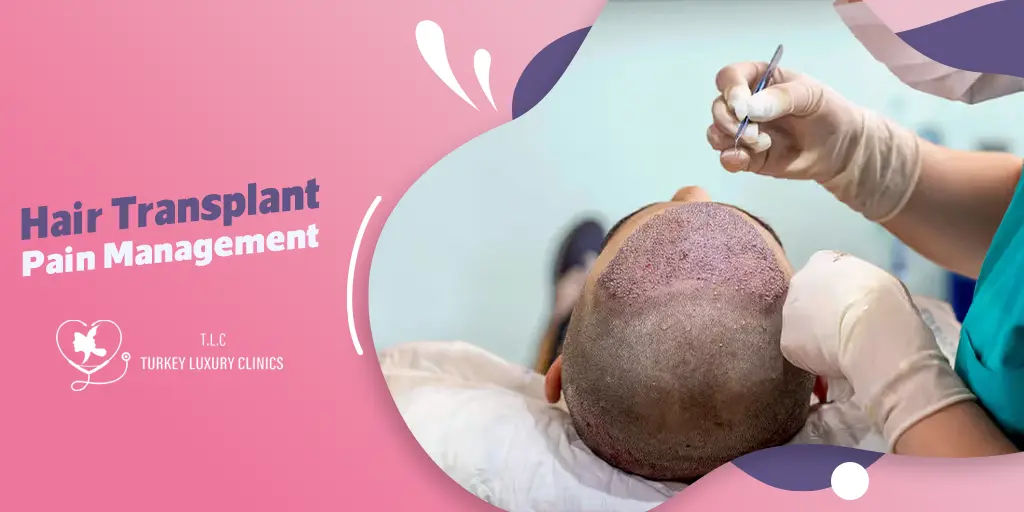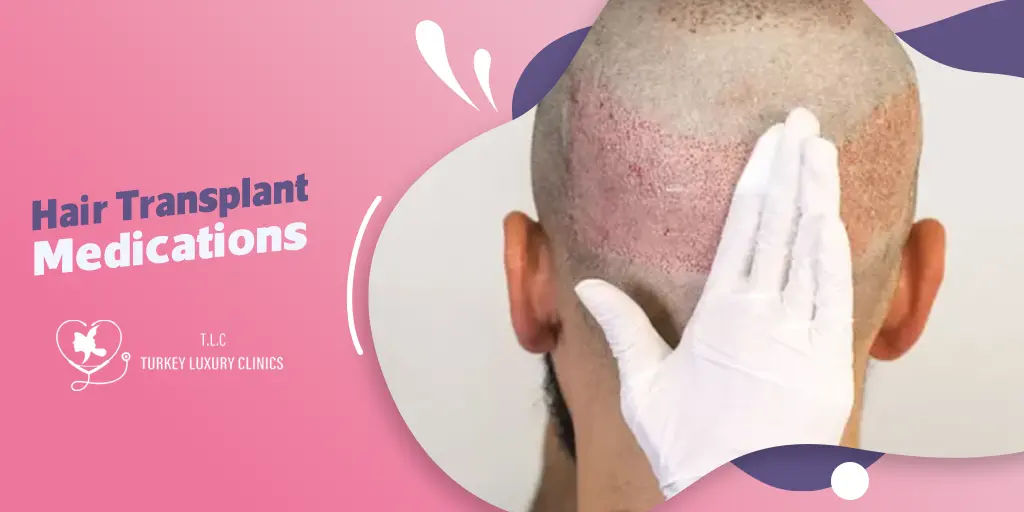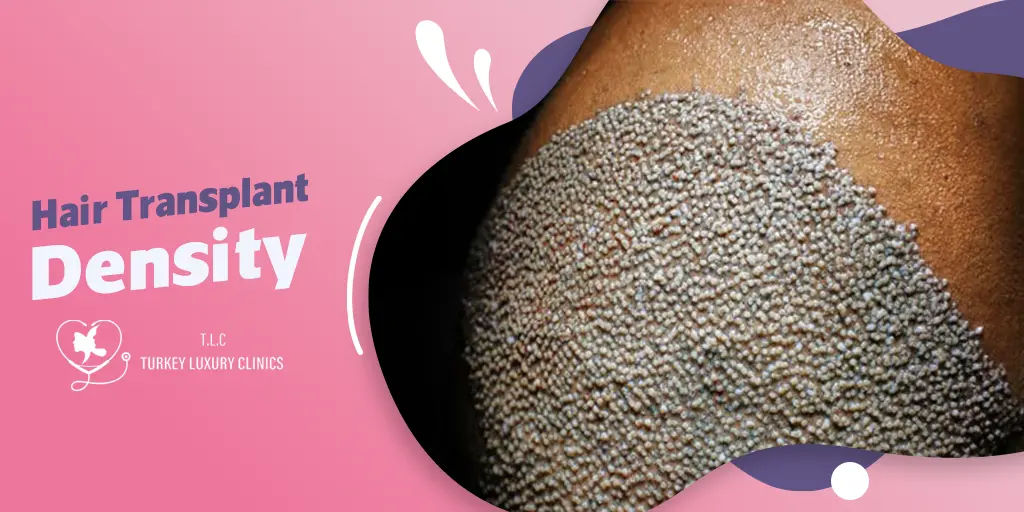- - Is Hair Transplant Painful?
- - Does a hair transplant surgery hurt?
- - Hair Transplant Pain: What to Expect
- - Pain after hair transplant
- - Will pain affect my hair transplant result?
- - Can hair transplant surgery cause long-term pain?
- - How can Turkey Luxury Clinics help you?
While hair loss is not a life-threatening condition, it has the potential to negatively impact a person's self-image. Fortunately, hair transplant surgery provides a long-lasting solution for hair restoration. However, the decision to undergo a hair transplant is often accompanied by significant anxiety, and one of the most frequently asked questions is whether the procedure will cause pain.
We're here to make sure you have all the info you need about hair transplant pain! We'll walk you through everything from what to expect during the hair transplant surgery to how to take care of yourself after it's done.
Is Hair Transplant Painful?
A hair transplant is not typically painful, as local anesthesia is used to numb the scalp during the procedure. You’ll be awake but won’t feel pain. After the surgery, you might experience mild discomfort, tenderness, or itching as the scalp heals.
Does a hair transplant surgery hurt?
A hair transplant generally does not hurt, as it’s performed under local anesthesia that numbs the scalp during the procedure. While some patients may feel a slight sting from the anesthetic injections, the surgery itself is usually painless. After the procedure, it's common to feel some mild soreness or tightness — often described as a graze-like pain — but this is temporary and manageable with over-the-counter pain relief.
Even though hair transplant surgery is minimally invasive, some level of discomfort is expected during the recovery period. If you’re especially sensitive, you might notice more tenderness than others, but serious pain is rare and short-lived.
Hair Transplant Pain: What to Expect
Hair transplant pain is usually minimal. The procedure is performed under local anesthesia, which numbs the scalp and prevents pain during surgery. Most patients only experience mild tenderness, tightness, or soreness afterward — symptoms that are easily managed with simple pain relievers.
What causes hair transplant pain and how to relieve it?
- During surgery: No pain due to effective anesthesia.
- After surgery: Some discomfort as the anesthesia wears off.
- Recovery period: Minor itching, swelling, or tightness in the donor/recipient areas.
- Pain relief: OTC medications like ibuprofen or clinic-prescribed options help manage post-op discomfort.
It doesn't matter which method you choose; hair transplant surgery is designed to make sure you're as comfortable as possible. After the initial local anesthetic injections, you shouldn't feel any pain during the hair transplant surgery. Once more, you shouldn't feel any pain, but you might feel some pressure or a tugging sensation as the doctor removes and places the hair follicles.
If you're nervous about needles, most clinics offer a needle-free anesthesia option. Needle-free anesthesia is a safe and effective way to numb the area for hair transplant procedures, as an alternative to the traditional local anesthetic methods used. The process is basically just delivering the anesthetic medication through high-pressure air instead of needle injections. This helps to reduce discomfort and minimize any potential risks associated with needles.
If you stay awake during the hair transplant procedure, we'll make sure you're as comfortable as possible with whatever you like to watch. At Turkey Luxury Clinics, you can choose from podcasts, soothing music, TV, and more. This will keep you entertained throughout the procedure and help you to stay focused on something other than the surgery.
Pain after hair transplant
After the procedure, your scalp is likely to feel tender and sore for a few days as the anesthetic wears off. As your scalp tissue has been subjected to trauma, you might see some redness and swelling around your grafts during that time. As a general rule, the more grafts you have, the longer it usually takes to heal.
After surgery, patients can take mild painkillers to help with any discomfort. This includes paracetamol or Ibuprofen for pain relief, prednisolone to reduce swelling, and tetracycline to prevent infection. You should start feeling better in a few days.
You should be able to get back to your normal routine within three days, but it's best to avoid brushing your hair for the first three weeks. This can disrupt the grafts and make the pain after your hair transplant worse.
It is essential to recognize that individual experiences of pain can vary considerably. While a majority of patients report no pain, some may encounter mild discomfort. This is typically considered temporary and should diminish within a few days.
Will pain affect my hair transplant result?
Pain shouldn't affect your hair transplant results at all! As long as you follow your surgeon's aftercare instructions, your transplanted hair follicles will heal just fine and start growing new hair in a few months.
If you experience any unusual pain or discomfort that lasts more than a few days after surgery, be sure to contact your hair transplant surgeon right away.
Can hair transplant surgery cause long-term pain?
It's pretty uncommon, but some hair transplant patients do run into complications after their surgery PubMed Central. This could be due to infected grafts or trauma to the transplanted area. If you're still feeling discomfort or tenderness in your grafts after two weeks, or if you're concerned that the healing process isn't going as expected, it's a good idea to check in with your hair transplant consultant.
How can Turkey Luxury Clinics help you?
Turkey Luxury Clinics is specialized in plastic surgery and other medical specialties. Our mission is to help people improve their appearance and health. Here is why you should choose Turkey Luxury Clinics instead of many others in Turkey:
- Professional medical consultation is provided by a qualified team of surgeons.
- Your transportation in Istanbul is our responsibility.
- Medical examination and complete preparation for surgery.
- Medical health consultants for assistance and interpretation.
- Regular follow-ups and remote recovery support
Contact us today to learn more about our safe, natural-looking hair transplant procedure, designed to restore your hair.













.webp)
.webp)
.webp)
.webp)

